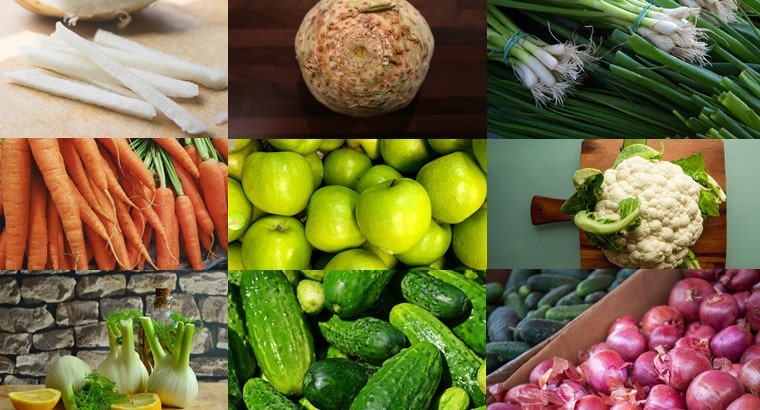Celery is a staple ingredient present in kitchens all around the world. It is healthy, it gives different meals a distinct taste, and is a favorite of vegetarians everywhere. However, not everyone enjoys celery and is able to eat it.
It could be due to an aversion to its unique taste or allergies. Thus, they need to find a substitute for celery that will provide them with the same benefits.
Below, you can find out what makes celery so special and how people use it in cooking. Then, you’ll see ideas for finding a substitute for celery. Read on!
What Is Celery?
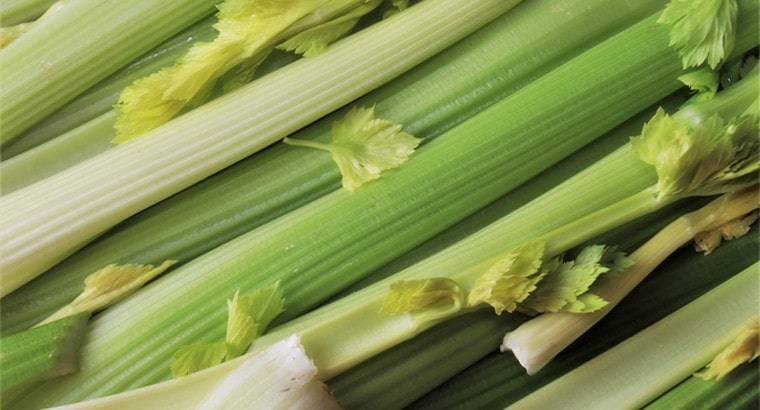
Celery is one of the marshland plants from the family called Apiaceae. This family also includes parsnips, parsley, carrots, and celeriac. Celery has a long and rather fibrous stalk that tapers into long leaves at the top. Depending on your preference, the stalk, leaves, and stem (hypocotyl) can all be used in cooking or as healthy snacks.
Celery is an extremely low-calorie vegetable that still has a lot of nutritional value. Moreover, it offers a barrage of health benefits that make it an indispensable ingredient in kitchens all around the globe.
The Health Benefits of Celery
Celery has some anti-inflammatory properties as it contains a plant compound called apigenin. This compound can help combat inflammation and bacteria, and it is also considered an antiviral agent.
Apigenin and another compound found in celery called luteolin could also potentially be beneficial in treating cancer. A study suggests that both compounds could reduce the spreading of cancer cells and speed up cancerous cell death.
Some experts also suggest that celery is great at reducing your blood pressure. Namely, the extracts from celery seeds have been able to lower blood pressure levels in both rats and humans.
Celery is also excellent for lowering your cholesterol levels. The extract is responsible for dissolving fat cells in your blood, thus preventing heart diseases and blood clots.
Finally, some studies that are still in their early stages seem to suggest that celery could also contain some compounds that can stimulate neurogenesis. Neurogenesis is the process of the generation and growth of nerve cells. However, these studies have not yet been concluded.
The Nutritional Content of Celery
Apart from the two compounds mentioned above, celery contains numerous other antioxidants that help prevent cellular damage. These substances keep your cells healthy and reduce the risks of you developing different illnesses.
Celery also contains vitamins A, C, and K. Moreover, it is rich in potassium and folate, which makes it quite important nutritionally.
Celery In Cooking
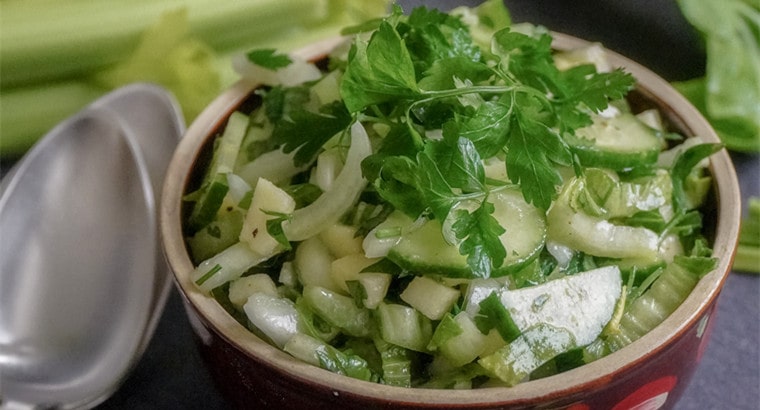
As we have already mentioned, various parts of celery can be used in cooking and included in all kinds of meals. These include the stems, leaves, seeds, and, of course, the stalks. Celery gives food a distinct earthy taste, somewhat similar to that of green onions.
Raw celery mixes great with cheese, different dips (hummus, for example), and peanut butter. You can also add small amounts of celery to your smoothies to give them an extra health boost. Adding celery to your salads or meals in the form of seasoning is also a great idea.
However, most people primarily use celery in cooking. It is great for making creamy soups, different sauces, and dips, and even as a side dish to be combined with meat or other vegetables.
Most people steam celery for a short time before consuming it in order to preserve all its nutritional value. However, even cooking it for a longer time will not reduce all its benefits.
All in all, you can put celery in pretty much any meal you’re preparing. However, if you are allergic or don’t like the taste, there are also ways to find a substitute for celery. You can find the substitute ideas in the sections that follow.
Ideas for a Substitute for Celery
1. Jicama
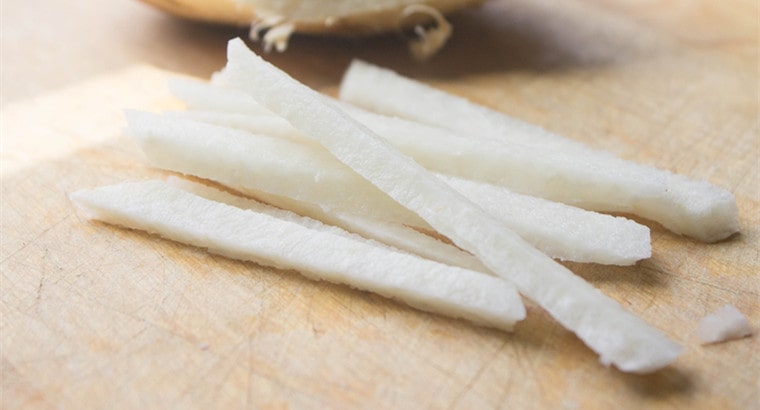
Jicama is, perhaps, the most famous substitute for celery out there. This plant has many names, from Mexican turnip or potato to Mexican yam bean. As these names suggest, it is native to Mexico.
Jicama is quite juicy and crunchy, just like celery. It is a great substitute for raw celery, especially in salads, as they taste similar. However, jicama’s taste is somewhat milder, which can be helpful if you dislike the often too strong taste of celery.
You can eat jicama raw, or you can cook it and include it in different dips. It will give your meals a creamy quality if cooked or make them crunchy if sprinkled on top.
2. Celery Seeds
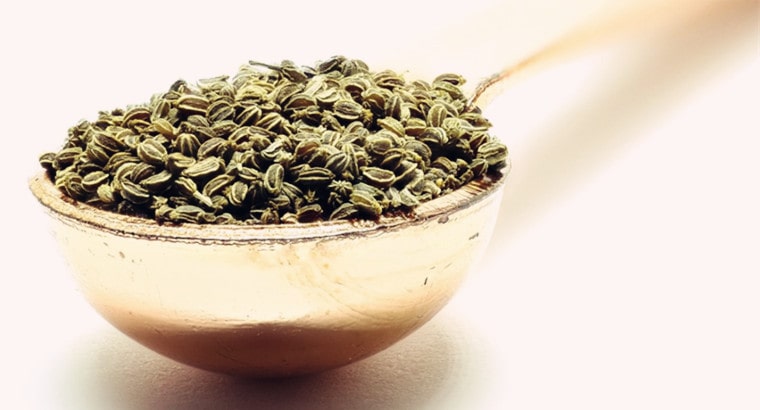
Image source: Pinterest
If you have a distinct problem with how celery tastes but aren’t allergic to it, then using celery seeds in your cooking is the way to go. The seeds contain the same vitamins and compounds that make celery as healthy as it is. However, they lack the earthy taste and scent.
You can sprinkle the seeds into your soups or stews. You can add them to homemade bread or pastries. And finally, you can include celery seeds into any dip or salad you’re making. It will be just like eating celery, minus the taste and scent.
3. Carrots
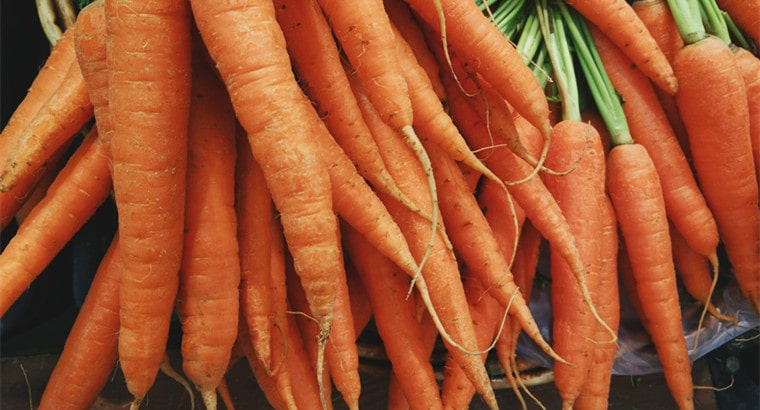
Many people enjoy celery for the creaminess and nice consistency it adds to their stews and pasta sauces. If you are allergic or would prefer something with a milder taste, then carrots are a great substitute for celery you can try.
Carrots mix amazingly with other vegetables, and they make great additions to all kinds of sauces and soups. They will make your meals rich in vitamins, and their taste will not be overbearing at all.
Even if you prefer celery because of its ability to add crunchiness to a meal, you can still substitute it with carrots. You only need to add thin slices of carrots (or you can grate them) to whatever you are preparing right before it is done. That way, the carrots will remain nice and crunchy and retain all their nutrients as well.
4. Celery Salt
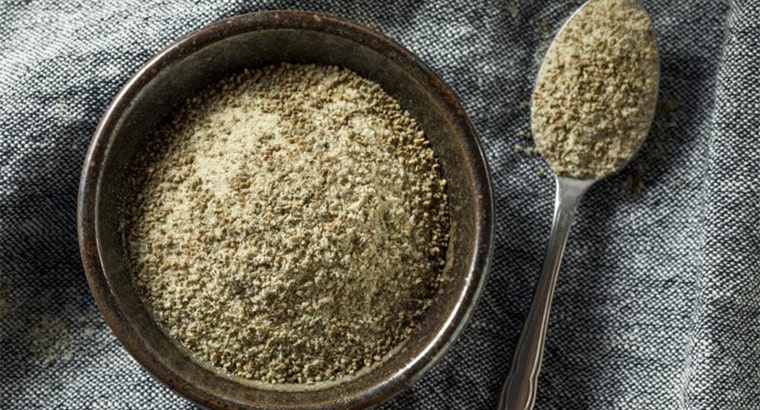
Image source: Pinterest
Celery salt consists of ordinary salt mixed with ground celery seeds. It is perfect for seasoning any type of broth or dip, salads, or anything you normally season with salt.
As with celery seeds themselves, celery salt does not have the strong taste you often associate with celery. You can enjoy the antioxidants and vitamins that celery offers without having to endure the unpleasant taste if you dislike it.
Of course, it is important to mention that dried seeds lose some of the health properties that raw or steamed celery usually has. Still, they are a great substitute for celery regardless of that.
5. Fennel Stalks/Fennel Bulbs
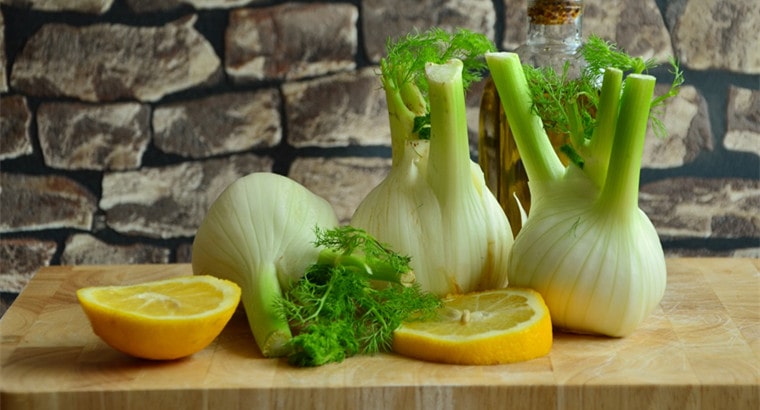
Fennel bulbs are the closest substitute for celery you will find when it comes to taste. So, if you actually enjoy the taste of celery but are allergic to it or can’t eat it for different reasons, this plant is the way to go.
You can eat these both raw and cooked. Just like celery, fennel stalks and bulbs have a stronger taste and scent uncooked and then become more mild and mellow once you steam them.
Fennel bulbs will make great additions to various kinds of meals. You can add them to stews or soups, make pasta sauces from it, or even add them to pastries and pies. In that sense, it is just as versatile as celery itself.
Fennels are also extremely rich in potassium, sodium, and Vitamin C. Thus, you can not only get a great substitute for celery but also an amazing and healthy addition to all your meals.
6. Bok Choy
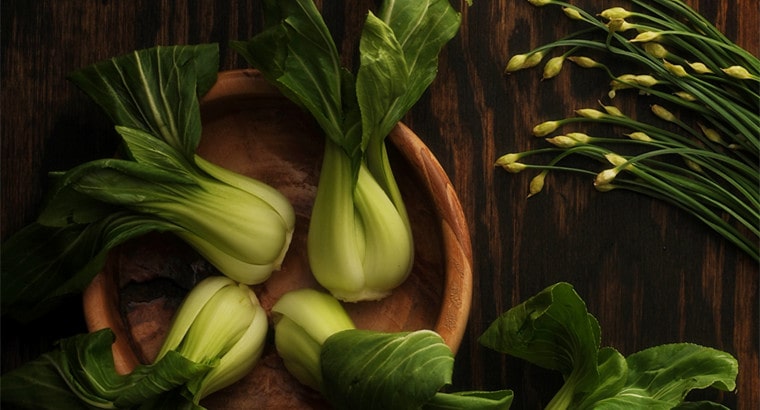
Bok choy, popularly known as Chinese cabbage, is another great vegetable you can use instead of celery. In fact, most Asian restaurants do exactly that, as the two vegetables taste similar. They opt for bok choy since it is more readily available and sometimes less expensive as well.
Bok choy is made of 95% water, and the rest is comprised of protein and some carbohydrates. As such, it is the perfect substitute for celery. You can eat it raw or cook it, depending on your preferences. Either way, it will make a great addition to all your low-carb meals.
7. Celeriac
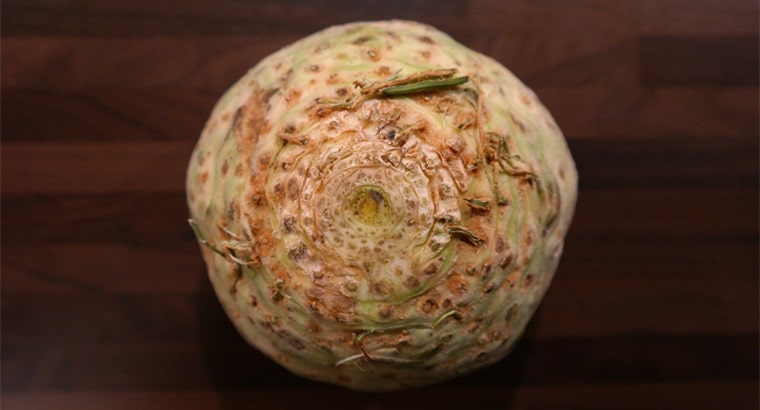
Celeriac is one of the closest relatives of celery when it comes to all important aspects. In fact, many consider it a subspecies of celery. As such, it is a great substitute as well. It has pretty much the same taste and scent as celery. The main difference between the two is that you can eat any part of celery, but only the root when it comes to celeriac.
Celeriac should not be consumed raw. Its taste is too bitter otherwise. Thus, you should only add it to your cooked meals. It goes great with carrots, especially in soups and broths. In addition, you can add it to pasta sauces as it will help improve their consistency.
If you do not mind the bitter taste, you can cut the celeriac into tiny strips and add it to salads raw as well. But only do that if you really like the taste, as it tends to be overbearing and take over everything you mix it with.
Nutritionally, celery and celeriac are quite similar. They both offer an abundance of potassium and antioxidants that will make you healthier.
8. Green (or More Acidic) Apples
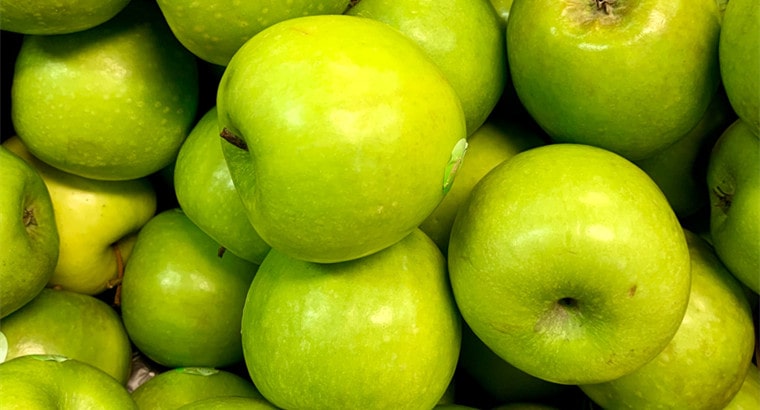
If you need a substitute for celery in your salads or smoothies, green apples are a great and healthy choice. They will add the same amount of acids and crunchiness as celery, but their taste will not be too overbearing.
Apples are beneficial for your health even more than celery, so this substitution actually helps you gain something as well. You will get an abundance of vitamin C and magnesium, which celery doesn’t offer as much of.
Of course, it goes without saying that apples cannot substitute celery in cooked meals. This suggestion is for raw celery only.
9. Chinese Water Chestnuts
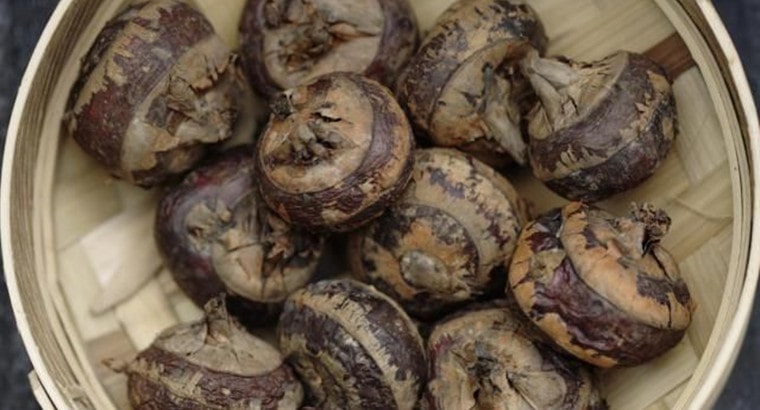
Image source: Pinterest
Water chestnuts are native to Southern and Southeastern Asia. As their name suggests, they grow underwater, which gives them a firm and crunchy texture on the outside. The chestnuts are high in fiber, have zero fat, and are quite low in calories.
The taste of water chestnuts is rather mild and milky, but they can give your salads the crunchiness you crave, just like celery. Thus, this is another suggestion for a substitute for raw celery.
10. Cucumber

If you want to eat raw veggies with a dip, cucumber makes a great substitute for celery. It resembles celery in texture and crunchiness but has a mild taste that won’t be too much.
Cucumber is a fantastic celery substitute during the summer, as it is rather cooling. You can even add it to smoothies and sauces and achieve effects similar to those you would get with celery.
11. Leek
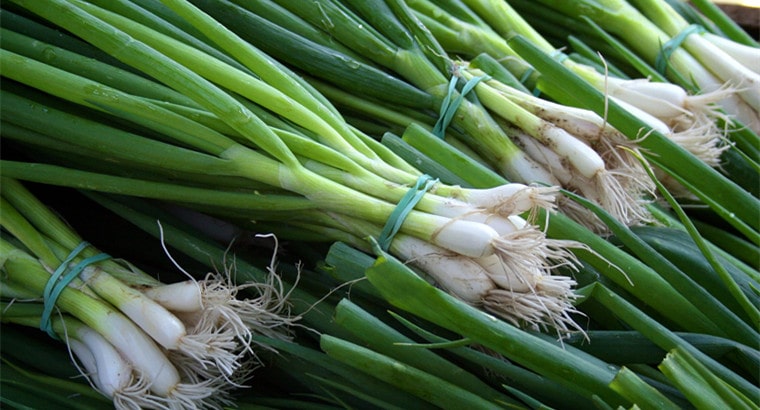
If you are looking for something to substitute celery within your cooked meals, leeks might be a good choice. You can add them to all kinds of stews and soups, and it will give them consistency and that earthy taste celery is famous for.
Leek also makes a great addition to risottos and any pasta sauces. It mixes rather well with onions and carrots which make up the base for many specialties as it is. Thus, you can experiment and add leeks to just about anything. You can never go wrong with this fantastic veggie.
12. Cauliflower

Cauliflower is another great celery substitute. It is rich in the same antioxidants and vitamins and tastes delicious when you cook it. You can add it to stews or soups, and if you mash it, it will give these meals a creamy texture.
Cauliflower is a great source of vitamin B-6 and potassium, meaning it’s even healthier than celery itself. However, this substitute is for cooked meals only, as you shouldn’t consume cauliflower raw.
13. Sunflower Seeds

Adding sunflower seeds to your salads or dips can substitute celery quite nicely. The seeds have a mild taste and will make up for the crunchiness you’ll miss if you omit celery.
However, sunflower seeds are richer in fats, meaning that they are not as low-calorie as celery is. You should keep that in mind if your goal is to lose weight or have a low-carb meal.
14. Chopped Radish
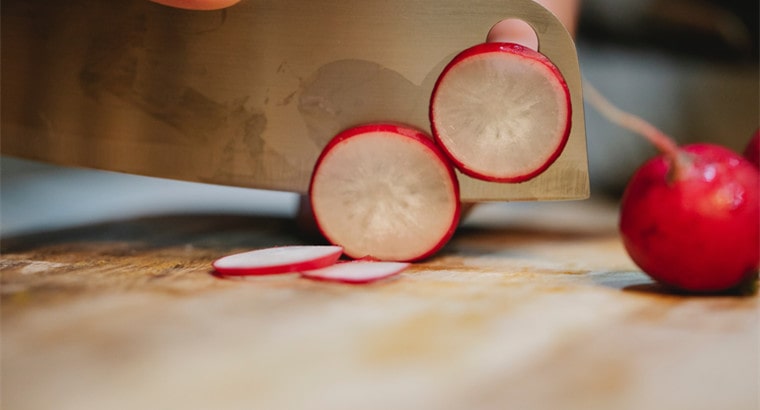
Radish is another ingredient you can add to your meals to replace raw celery. It is rich in vitamins and antioxidants and not as bitter and earthy as celery.
15. Onions

Red, yellow, and white onions are great substitutes for celery when it comes to flavor and texture in cooking. These veggies are also less expensive and more available, but they are just as healthy and beneficial.
You can add onions to virtually any cooked meal, and they’ll do their job perfectly every time. So, if you want a safe substitute for celery that you know will work, look no further.
16. Green Bell Peppers
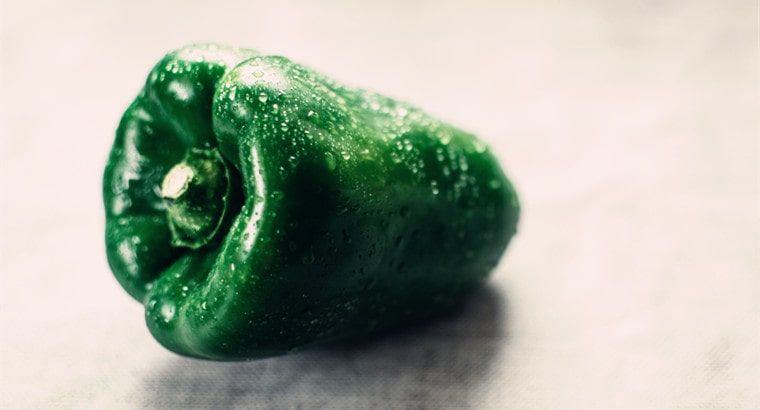
Green bell peppers might seem like an unlikely substitute for celery, as you probably think that they do not taste similar at all. However, when you cook them, the two taste pretty similar after all.
Thus, you can use bell peppers for cooked meals, especially risottos. In addition, you can add them to stuffing instead of celery and achieve the same effects.
17. Cabbage

Cabbage does not taste the same as celery. However, it is a healthy substitute that might work if you are out of options. You can add a pinch of salt to it to enhance its flavor as you cook it.
Cabbage can also give the perfect crunchy feel to your salads, as long as you make sure it is fresh when you buy it. This veggie has health benefits of its own, such as helping prevent diabetes and inflammation.
18. Parsley

Parsley is an aromatic herb, and it is one of the most widely used ingredients when it comes to cooking sauces and stews. Celery and parsley actually belong to the same family and are quite similar. They only differ in taste, as parsley’s is stronger.
If you choose to substitute your celery with parsley, do so in smaller amounts. If you put too much parsley in, it will take over whatever you are cooking, and you’ll be able to taste nothing else.
19. Cardoon
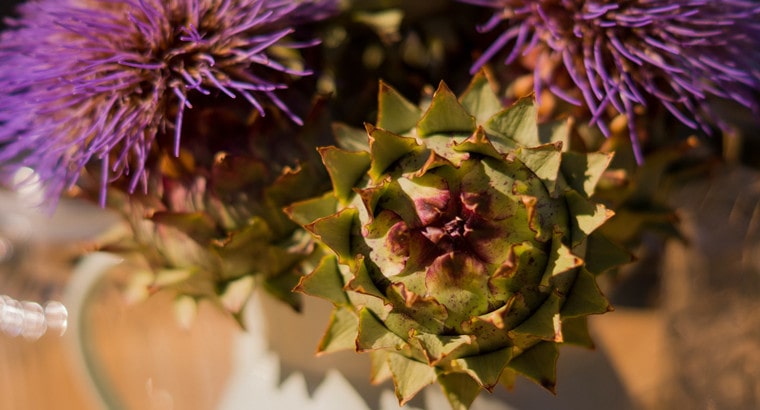
Cardoon is a vegetable with stalks that look almost exactly the same as those of celery. It is a good substitute for celery in cooked meals when it comes to texture and flavor. However, one thing to keep in mind is that cardoon takes longer to cook than celery.
Cardoons contain nutrients that can reduce your cholesterol levels. As such, it is great for your cardiovascular system and helps prevent different diseases.
20. Dill Seeds
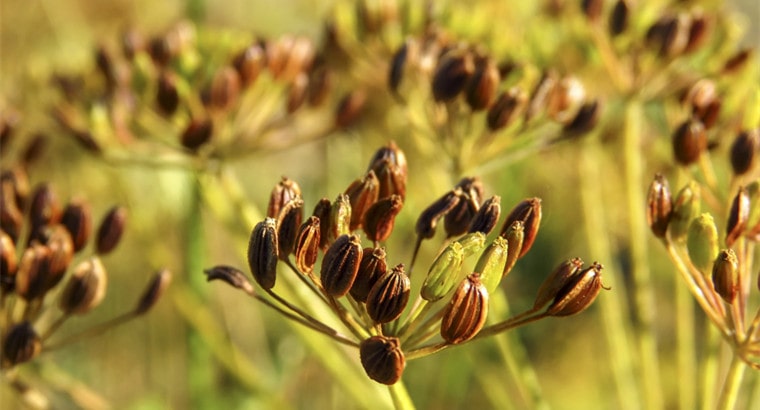
Crushed dill seeds mixed with salt are an excellent substitute for celery salt. You should go for this option if you want the same nutrients but are allergic to celery.
Final Thoughts
Celery is one of the healthiest veggies out there. You can eat it raw or cooked, and its taste will elevate any meal you are preparing. If you are allergic to celery or dislike its taste but still don’t want to miss out on all its benefits, this list with substitute for celery ideas should help you. Good luck, and happy snacking!


